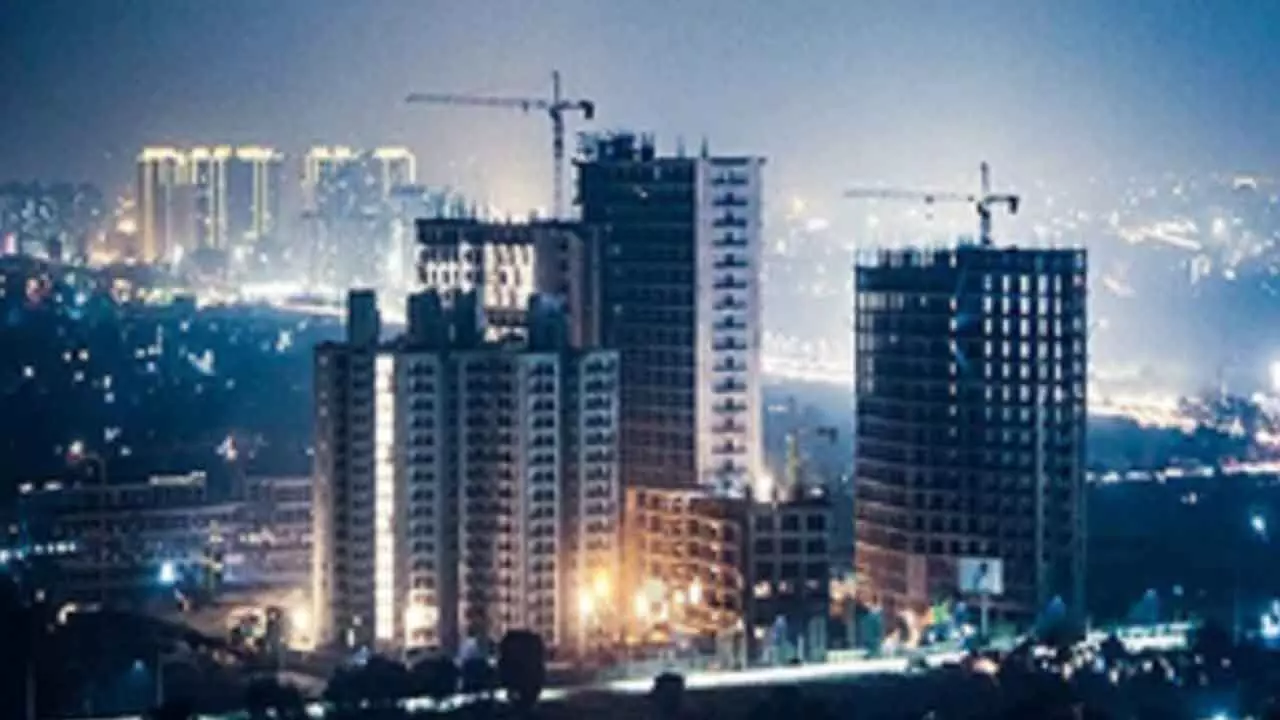Commercial Realty Set To Thrive In 2025 As Residential Demand Slows
As the real estate sector looks to build on a strong 2024, developers anticipate that a rate cut cycle in 2025
Commercial Realty Set To Thrive In 2025 As Residential Demand Slows

Despite challenges, commercial real estate, particularly office spaces and warehousing, remains resilient. The rise of GCCs in cities like Bengaluru and Hyderabad, alongside an expanding demand for co-working spaces, is expected to fuel sustained growth across multiple segments. Tier II cities are also emerging as hotspots for residential development, adding further optimism for the sector
Bengaluru: Real estate developers are hoping for the rate cut cycle to start for accelerating the growth of realty sector in 2025 after a sound year in 2024.
Developers have seen good demand for both residential and commercial properties in the first half of the year though growth in the residential segment has been slack owing to price rise by developers. Slowdown in urban consumption has also played a role in the residential market.
“Overall, the market outlook is certainly positive and given the confidence built this year, we do believe that markets will continue to see sustained growth over the next few years, providing appealing prospects for both first-time buyers and seasoned investors. While the residential real estate sector continues to show robust performance in the existing interest rate environment, we definitely hope to see lower interest rates next year which will provide further impetus to real estate and other sectors,” Ramani Sastri, Chairman and MD of Sterling Developers said.
According to real estate consultancy firm, Anarock, housing sales fell by 11 per cent duringJuly-September to 1.07 lakh units in seven major cities on lower launches and an annual 23per cent growth in average prices. To attract home buyers, realty players are currently offering discounts and various other schemes to revive home purchases.
Meanwhile, real estate consultants are of the opinion that residential property prices are expected to rise by 6.5 per cent in 2025, led by premium and luxury segments.
Especially, tier II cities like Indore, Kochi, and Jaipur are poised for higher growth in the residential segment, Priyesh Chheda, Founder, Arbour Investments said.
While residential segment has seen cyclicality towards the second half of 2024, the demand for commercial office spaces has remained sound throughout the year.
Especially, growth of GCCs (Global Capability Centres) will propel the commercial realty going ahead.
“Global Capability Centers (GCCs) are reshaping South India’s real estate landscape, fuelling demand for commercial and residential spaces in cities like Bengaluru, Hyderabad, and Chennai. Emerging hubs like Coimbatore and Visakhapatnam are also gaining traction. This expansion, driven by tech giants and multinational corporations, is catalyzing urban infrastructure development, creating dynamic live-work-play environments,” Chheda, Founder, Arbour Investments said.
Meanwhile, warehousing is likely to sustain momentum in 2025 on the back of rapid urbanisation. The warehousing market recorded 20 per cent year-on-year growth in Q3 2024, with transaction volumes reaching 14.65 million sq. ft. Grade A spaces dominate with a 66 per cent share, driven by manufacturing and surging retail and e-commerce demand.
Similarly, co-working space is likely to increase its share in the overall real estate market going ahead.
“While co-working spaces continued to perform well in the recent past, we believe the share of coworking in the overall leasing of flex space is set to grow further and play a pivotal role in 2025 and beyond. As India's workforce is becoming increasingly mobile, and co-working spaces are well-positioned to cater to this dynamic shift with niche offerings. The demand for co-working spaces is expected to grow at around 20 per cent over the next two to three years,” Manas Mehrotra, Founder of coworking operator, 315Work Avenue said.

